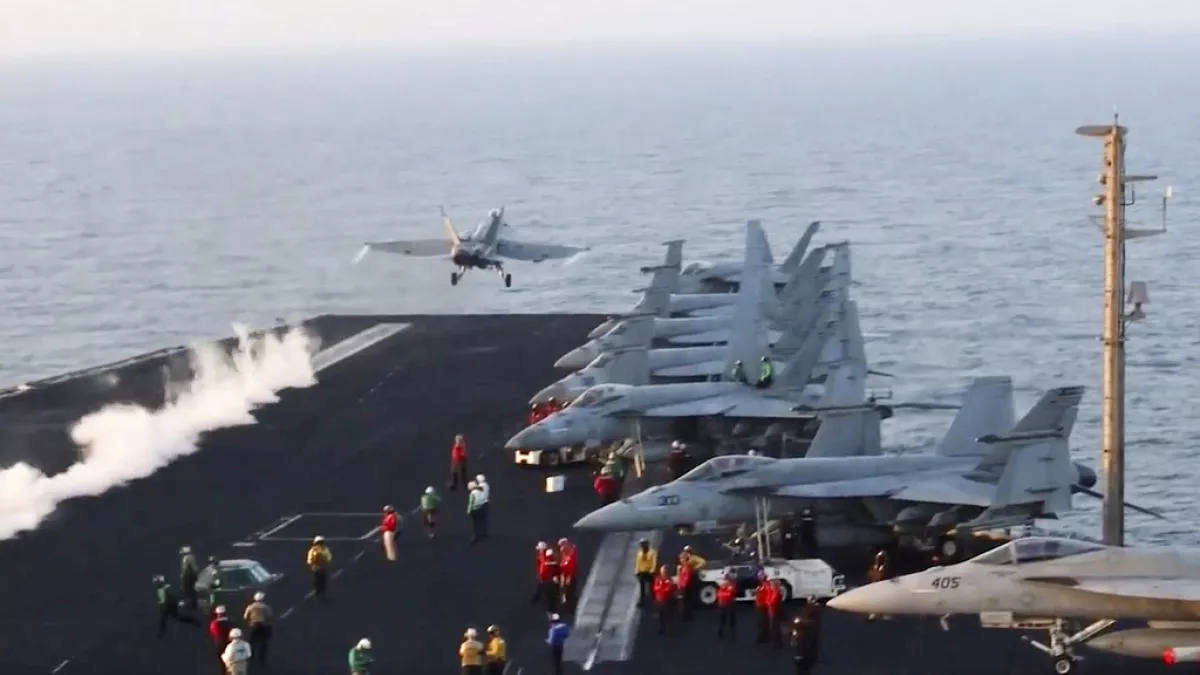Tensions Escalate as Houthi Rebels Continue Attacks in Yemen: US Response Intensifies
March 16, 2025
Yemen
Sana’a, Yemen — Yemen continues to be embroiled in conflict as Houthi rebels, backed by Iran, intensify their attacks across the country, resulting in mounting casualties and widespread destruction. Despite international calls for peace, the war shows no signs of abating, with the US escalating its military presence in the region in response to a series of Houthi-led attacks on key infrastructure.
The Houthis, also known as Ansar Allah, have launched a series of missile strikes on Saudi Arabian and Yemeni territories in recent weeks, with the most recent attack targeting civilian areas in southern Saudi Arabia. The strike, which took place on March 14, 2025, resulted in multiple civilian casualties and sparked an immediate military response from the Saudi-led coalition, which has been fighting against the Houthis since 2015.
Houthi Attacks on Civilian Targets
On March 14, Houthi rebels fired multiple missiles at civilian targets in southern Saudi Arabia, including residential buildings and an oil pipeline. At least 10 people were reported dead, and dozens more were injured. The attack, which is believed to be the largest of its kind in recent weeks, has further strained the fragile ceasefire efforts in the region.
The Houthis, who seized control of Yemen’s capital, Sana’a, in 2014, have since been locked in a brutal conflict with the internationally recognized government of Yemen, backed by Saudi Arabia. The Houthis have long accused Saudi Arabia of attempting to intervene in Yemen’s internal affairs, and the recent strikes are seen as a response to Saudi-led airstrikes against Houthi positions in northern Yemen.
The missile strikes targeted an oil pipeline in the city of Jizan, Saudi Arabia, which is a key conduit for crude oil exports. The attack has raised concerns over the security of oil shipments through the region, which is critical to global energy markets.
The US Response: Increased Military Presence
In response to the escalating violence, the United States has conducted a series of military strikes in Yemen, targeting Houthi positions in the region. On March 15, 2025, the Pentagon confirmed that US forces launched airstrikes on Houthi missile sites and drone storage facilities in northern Yemen.
A US military spokesperson stated that the strikes were carried out in coordination with the Saudi-led coalition and aimed to disrupt Houthi missile capabilities that threaten both regional security and maritime routes in the Red Sea. The Pentagon also emphasized that the strikes were intended to protect US interests in the region, particularly the security of Saudi Arabia and the vital energy infrastructure.
The US has steadily increased its military presence in the region over the past several months, following the Houthis’ use of increasingly sophisticated missile and drone technologies, which have been used to target both military and civilian sites. The US has also provided intelligence and logistical support to the Saudi-led coalition, despite growing concerns about civilian casualties caused by the coalition’s airstrikes.
Iran’s Role in the Conflict
The Houthis have long been accused of receiving support from Iran, including weapons, military advisors, and financial backing. While Iran has denied directly arming the Houthis, there is strong evidence linking Tehran to the group’s growing missile capabilities. This has raised alarm in both Saudi Arabia and the United States, which view Iran’s involvement as a destabilizing factor in the region.
In response to the US military strikes, Iran has condemned the escalation of violence and called for an immediate ceasefire. Iranian officials have repeatedly argued that the US and Saudi Arabia’s intervention in Yemen only prolongs the suffering of the Yemeni people, and they have urged the international community to pressure both sides to engage in meaningful negotiations.
Humanitarian Crisis Deepens
The humanitarian crisis in Yemen continues to worsen as the conflict enters its 10th year. Over 230,000 people have been killed since the war began, and millions of Yemenis have been displaced, facing dire conditions in refugee camps across the country. Access to basic necessities such as food, clean water, and medical care remains limited, and the blockade imposed by the Saudi-led coalition has exacerbated the situation.
The United Nations has repeatedly warned that Yemen is facing one of the worst humanitarian crises in the world, with over 20 million people in need of humanitarian assistance. The ongoing airstrikes, coupled with the Houthi rebel offensive, have made it nearly impossible for aid organizations to deliver supplies to those most in need.
Doctors Without Borders, an international medical aid organization, has expressed concern over the lack of medical facilities in northern Yemen, where the fighting has been most intense. The organization has called on both the Saudi-led coalition and Houthi forces to allow unhindered access for humanitarian aid.
Diplomatic Efforts and International Pressure
International efforts to mediate a peaceful resolution to the Yemen conflict have so far failed to produce meaningful results. The United Nations has convened multiple rounds of talks between the Houthis and the Saudi-backed Yemeni government, but these negotiations have been marred by distrust and a lack of political will from both sides.
The US has also been involved in diplomatic efforts, calling for a ceasefire and pushing for a more robust peace process. However, with both the Houthis and the Saudi-led coalition deeply entrenched in the conflict, prospects for a lasting peace remain uncertain.

